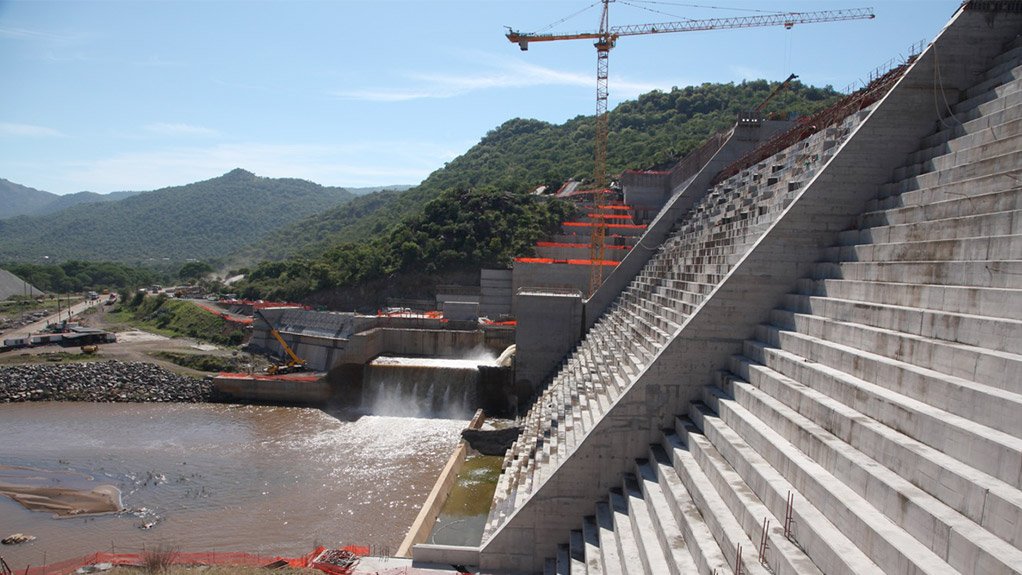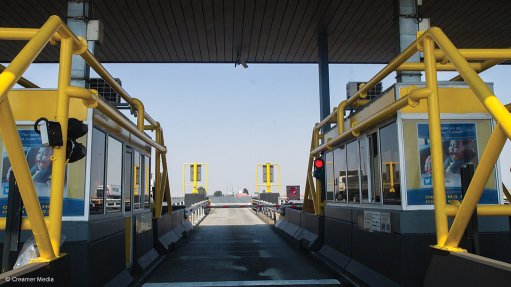Collaboration, participation underpin efforts to mitigate water infrastructure challenges


A panel of water experts explore how to fix fragile infrastructure and build a water-secure future for all businesses and communities in South Africa
Mines have a role to play in the overall catchment of where they are situated
South Africa’s water infrastructure challenges are well known and documented, and it is critical that initiatives such as public-private partnerships (PPPs) and new technologies and funding models be implemented to ensure a supply disaster is averted in this water-scarce country.
This was highlighted by speakers during Creamer Media’s webinar, titled 'Water: Fixing fragile infrastructure and building a water-secure future for all businesses and communities', held on March 26.
Department of Water and Sanitation (DWS) water services deputy director-general Dr Risimati Mathye warned that, without change in the sector, the country was at risk of a disaster, with projections showing a water provision shortfall by 2030 if this remained unmitigated.
He said capacity issues at a local government level presented a considerable challenge to the sector, as this was where the majority of the water infrastructure projects get managed, planned and implemented.
There was progress being made to mitigate a catastrophe, but this was insufficient, Mathye said. He also noted that the DWS was working on reforming the sector as a whole and seeking to attract participation from the private sector and other stakeholders.
Presenting the perspective of the mining industry, industry organisation Minerals Council South Africa environment, health, legacies and employee relations senior executive Nikisi Lesufi outlined its “contradictory” role in the water sector, as both a consumer and provider of the resource.
He said the mining industry had two roles to play in terms of water; firstly, enduring efficiency, with mines to strive to use less water while producing more tonnages.
Secondly, Lesufi highlighted integrated water resources management as a fundamental condition for mining to thrive. Lesufi explained that mines also had a role to play in the overall catchment where they were situated.
Water treatment solutions company NuWater business development head James Morisse pointed out that there erre various private-sector technologies available that were robust, easily deployable and able to provide consistent water quality.
He called for a “novel” approach of educating stakeholders in government institutions about these technologies, positing that they would be more amenable to adopt them as part of their final solutions if they were aware of their availability and benefits.
DWS Water Partnership Office (WPO) head Johann Lubbe, meanwhile, pointed out that it was complicated to finance the water sector in the country and, while the private sector had the requisite funds, the funding mechanisms were not supportive.
Therefore, he said the WPO was established by the DWS to provide opportunities for the private sector to support municipalities with the provision of water services, with this aiming to emulate successes seen in PPPs in the energy sector.
The WPO is pursuing a more programmatic approach, with six key programmes currently under way, Lubbe informed.
Article Enquiry
Email Article
Save Article
Feedback
To advertise email advertising@creamermedia.co.za or click here
Announcements
What's On
Subscribe to improve your user experience...
Option 1 (equivalent of R125 a month):
Receive a weekly copy of Creamer Media's Engineering News & Mining Weekly magazine
(print copy for those in South Africa and e-magazine for those outside of South Africa)
Receive daily email newsletters
Access to full search results
Access archive of magazine back copies
Access to Projects in Progress
Access to ONE Research Report of your choice in PDF format
Option 2 (equivalent of R375 a month):
All benefits from Option 1
PLUS
Access to Creamer Media's Research Channel Africa for ALL Research Reports, in PDF format, on various industrial and mining sectors
including Electricity; Water; Energy Transition; Hydrogen; Roads, Rail and Ports; Coal; Gold; Platinum; Battery Metals; etc.
Already a subscriber?
Forgotten your password?
Receive weekly copy of Creamer Media's Engineering News & Mining Weekly magazine (print copy for those in South Africa and e-magazine for those outside of South Africa)
➕
Recieve daily email newsletters
➕
Access to full search results
➕
Access archive of magazine back copies
➕
Access to Projects in Progress
➕
Access to ONE Research Report of your choice in PDF format
RESEARCH CHANNEL AFRICA
R4500 (equivalent of R375 a month)
SUBSCRIBEAll benefits from Option 1
➕
Access to Creamer Media's Research Channel Africa for ALL Research Reports on various industrial and mining sectors, in PDF format, including on:
Electricity
➕
Water
➕
Energy Transition
➕
Hydrogen
➕
Roads, Rail and Ports
➕
Coal
➕
Gold
➕
Platinum
➕
Battery Metals
➕
etc.
Receive all benefits from Option 1 or Option 2 delivered to numerous people at your company
➕
Multiple User names and Passwords for simultaneous log-ins
➕
Intranet integration access to all in your organisation




















